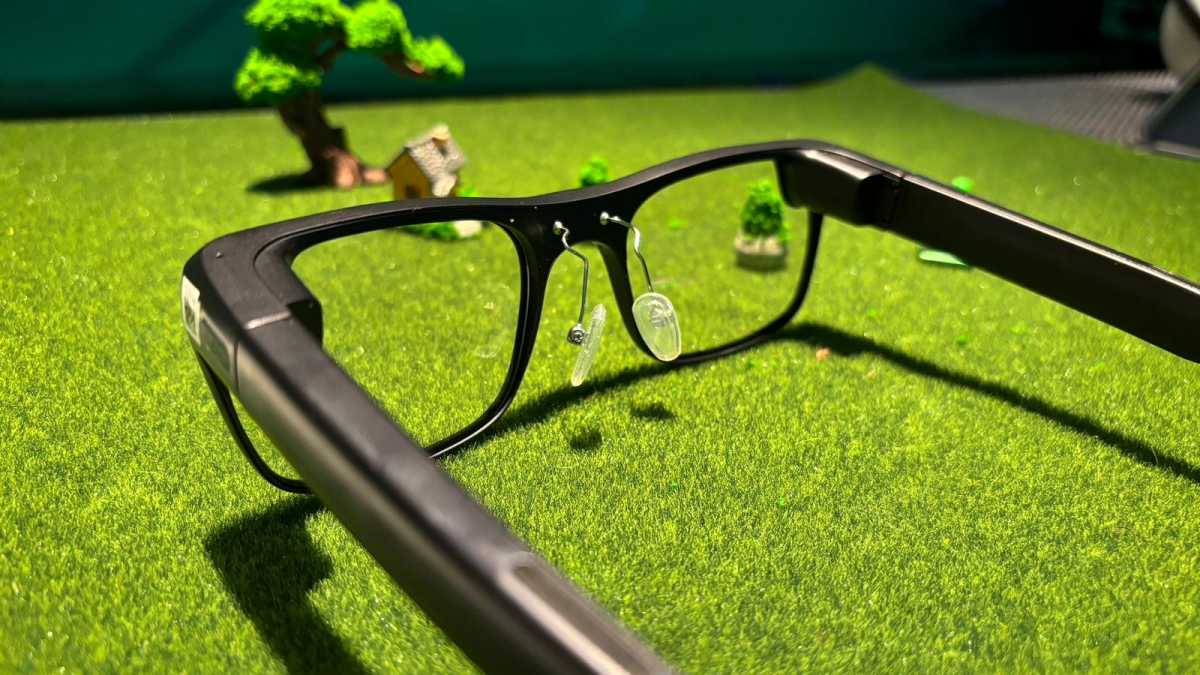After many years of pushing by the tech industry, smart glasses (and various other forms of techy headgear) are starting to catch on. It’s a trend that, until now, had left me quite skeptical – for one key reason: the design.
This is either because they’re obviously ‘smart’, meaning you’re a likely candidate to be robbed down a dark alley, or they make you look like a complete wally. In the case of the Apple Vision Pro, it’s both (sorry, not sorry). However, I found a product at MWC 2024 that has finally bucked the trend.
Tech Advisor was one of two publications to have a behind-the-scenes try-on session with the Oppo Air Glass 3, a pair of AR (augmented reality) glasses that were officially announced yesterday. They’re made from a magnesium-lithium alloy and come in classic black.
As you can see, they look just like a normal pair of glasses, and they feel just as light and comfortable, weighing only 50g.

Chris Martin / Foundry
They’re controlled by swipes on the arm via touch sensors, though it took me a few goes to navigate smoothly. With the glasses on, I could see an e-book projected in front of my eyes, and scroll through to a calendar, the weather, and more. These projections were bold and colourful, as the glasses have a peak brightness of over 1,000 nits.
You can also communicate with Oppo’s voice assistant via the glasses, with four inbuilt speakers to listen for commands. The technology uses the AndesGPT model, and can therefore process images, text, video, audio, and more.
The downside is that the Oppo Air Glass 3 is a China-exclusive prototype, and therefore won’t be coming to the UK or the US. There’s still a lot to be figured out with this type of tech. For example, I use prescription glasses for work but didn’t have them on during this shindig. Therefore, the text was blurry for me.
There’s an option to wear them on top of your normal glasses, of course. My fellow Tech Advisor team member tried this and had no issues… but it certainly takes away any street cred you may have.
The way forward is surely incorporating your prescription lens into the glasses, but I imagine that it’ll be pricey, and not everyone has the money or desire to get laser eye surgery.
If Oppo does manage to tidy up these issues, this could be a game-changing product. They could be used for live translations for both foreign languages and people with hearing impairments, and for directions when you’re out and about, all while remaining quite inconspicuous.
It’s a huge step forward from the first pair of AR glasses Oppo launched in 2019, which made you look like Frozone from The Incredibles.
